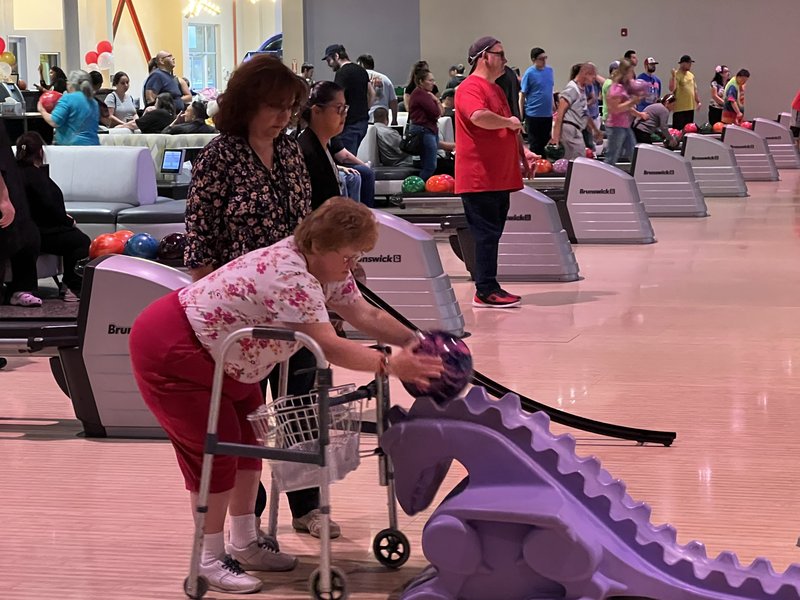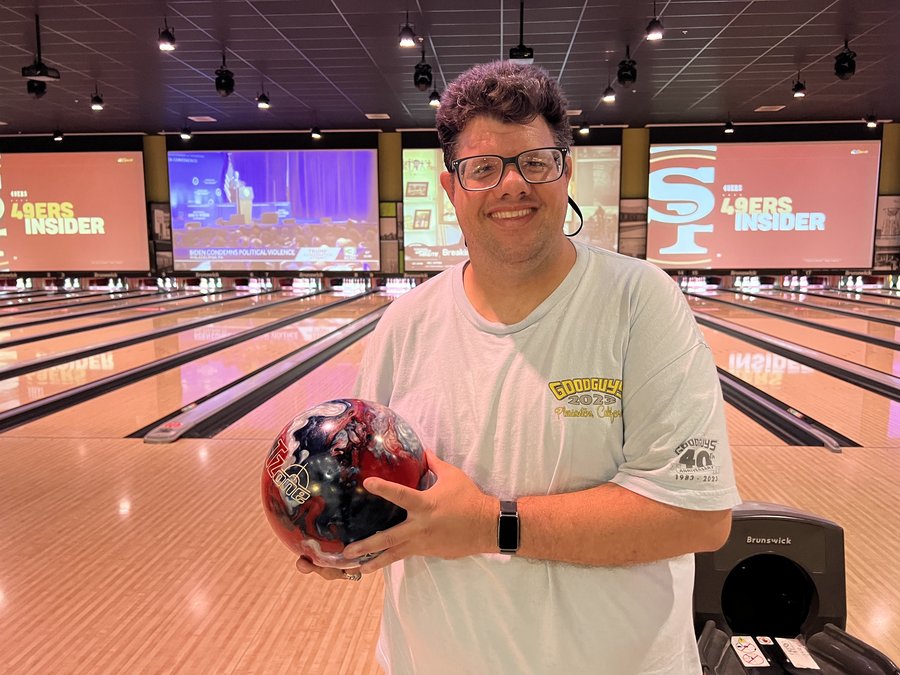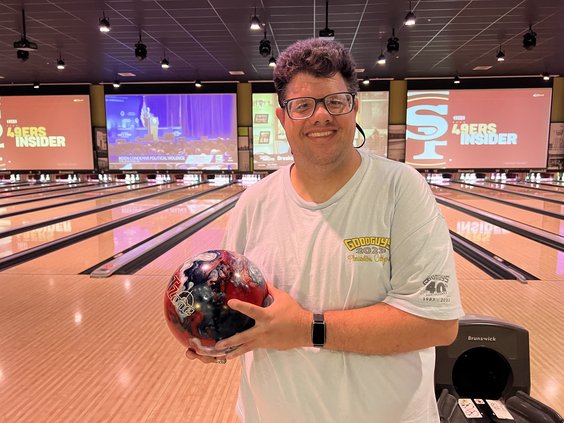The thunder-like sound of bowling balls rolling down the lanes, punctuated every so often by a cacophony of pins slamming into one another, could be heard the minute you stepped inside Ten Pin Fun Center Monday.
Nearly 100 Special Olympians from one of two day programs in Turlock — United Cerebral Palsy of Turlock and Continuum College — were happily rolling strikes and spares, with the occasional gutter ball mixed in. They took up just about all of Ten Pin’s 26 lanes in the main alley.
It was the second week of an eight-week bowling adventure for these developmentally disabled adults.
“Most of the athletes have autism or Down Syndrome or cerebral palsy,” said Sherry Gaddam, director of Special Olympics day programs in the region. “They’ve aged out of a high-school program and are now in a day program.”
The Special Olympics was founded by Eunice Kennedy Shriver, sister of President John F. Kennedy, in 1968. Their sister Rosemary was developmentally disabled, and the cause was close Shriver’s heart throughout her life.

The Special Olympics has been active in Stanislaus County since 1972, and John Wray has been the director for almost all of that time.
“We got some money from a donor in their will and have been able to expend the program throughout the county,” said Wray. “It was just was a small community program, but we wanted to take the program where the athletes were. Ceres and Patterson had bowling for adult day programs, and then we expanded into Turlock.”
Special Olympics has long been part of community programs in Turlock, with a bowling league at Ten Pin each Wednesday and Friday. It’s just one of several sports that Special Olympics offers. This is the first year, however, that Special Olympics extended its offerings to day programs.
“We’re just trying to do something to give back to the community,” said Ten Pin manager Maria Wainwright. “I called around and was talking with other bowling centers in Modesto and they had Special Olympics. Turlock had bowlers that were interested in coming here because Modesto was a distance for them.”
One bowler Monday was Daniel, a fan of the Houston Texans, which was immediately apparent by his Houston Texans bowling-ball bag. He stepped forward Monday and volunteered to have his picture taken for the Turlock Journal. With an ever-present smile and a laid-back demeanor, Daniel also took a moment for an interview.
Asked if he had fun during the near three-hour session, Daniel offered a clear and economic reply: “I tried to.”
Turns out that Daniel, who rolls a red-white-and-blue swirl T-Zone ball, wouldn’t mind turning professional one day. The lure of traveling around the country, winning tournaments and cashing oversized checks seems rather appealing.
Later this year, it will be determined what sport comes next for these Special Olympians.
“In December we’ll have another meeting to decide what sport do next,” said Gaddam. “We try to have a least four sports a year that they can continue with. Cornhole or bocce are probably next, and then we’ll go from there.”





